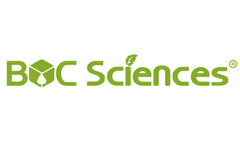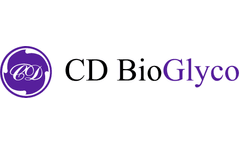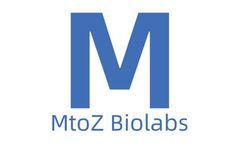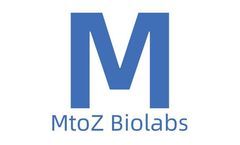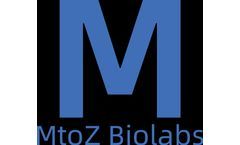Refine by
Vaccinating Articles & Analysis: Older
296 articles found
In the realm of biotechnology and pharmaceuticals, stable cell lines serve as a foundation for producing high-yield protein therapeutics, monoclonal antibodies, and vaccines. They are routinely employed to study gene function, signal transduction pathways, and drug screening processes. ...
By specializing in diverse drug development services and therapeutic methodologies, Alfa Cytology is poised to make significant contributions to the field of oncology and continues to expand its capabilities in response to the evolving demands of cancer research.Learn more: cancer vaccine development services ...
Lessons learned from COVID-19 treatments are being applied to other viral diseases, helping to develop more effective immune-based therapies. Vaccine Innovations Vaccine development has taken center stage in the fight against viral infections. ...
Glycan microarrays allow researchers to detect these changes and correlate them with disease stages or therapeutic responses, providing valuable tools for diagnostics and personalized medicine. 3. Vaccine Development and Antibody Screening Microarrays are also instrumental in the development of vaccines and in screening for antibodies that target specific ...
In recent years, messenger RNA (mRNA) technology has emerged as a revolutionary approach in the field of medicine, particularly in vaccine development and gene therapy. The ability to deliver mRNA effectively to target cells is crucial for harnessing its potential in treating a variety of diseases, including infectious diseases, cancer, and genetic disorders. ...
They are increasingly being employed in the fields of vaccine development, cell engineering, and even in the emerging area of gene editing technologies. ...
The COVID-19 pandemic opened the floodgates for mRNA research and applications, showing the world how critical mRNA technology can be. Remember those mRNA vaccines? They were developed at unprecedented speed, thanks to the work of enzymes that enabled the rapid and large-scale production of mRNA. Pfizer-BioNTech and Moderna utilized advanced enzymatic processes to generate ...
Notable examples include peptide hormones like insulin and drugs used in cancer treatment. Vaccines Synthetic peptides are employed in the development of vaccines, providing a safe and stable alternative to traditional attenuated or inactivated pathogens. Peptide-based vaccines are designed to elicit specific immune responses, offering immunity ...
Complementing their drug development efforts, Alfa Cytology also spearheads vaccine development services for brain tumors, focusing on harnessing the body’s immune response to combat tumors. These services encompass antigen discovery, vaccine formulation, and immunogenicity testing, offering researchers comprehensive tools to develop innovative ...
Recombinant protein vaccines are vaccines produced using genetic engineering technology. The principle is to clone one or several antigen genes of a pathogen into host cells, causing them to express the corresponding antigen protein. These proteins are then extracted for use in the vaccine. These vaccines can effectively ...
In addition, there is a growing interest in the use of liposomes as vaccine adjuvants, leveraging their immunostimulatory properties to enhance antigen presentation and elicit robust immune responses. ...
The vectors have been used safely in gene delivery vaccines and are effective in introducing genes into cells. Another gene delivery system is non-viral gene delivery, which uses non-viral vectors including liposomes, nanoparticles and some polymers to carry nucleic acids. ...
Recombinant protein vaccines are vaccines prepared by expressing and purifying the antigen proteins of pathogens in engineered cells (such as bacteria, yeast, mammalian cells, and insect cells) using genetic engineering technology. Compared with other types of vaccines, recombinant protein vaccines are more costly but have ...
The services range from genetic analysis, tumor biology research, and biomarker validation, to comprehensive cancer model customization services.More about: Cancer vaccine delivery systems development services ...
This knowledge is vital when developing therapeutics, such as vaccines, or studying disease progression and drug resistance. Clonality analysis services also play a central role in quality control in biotechnology. ...
Vaccines have been essential in disease prevention, and the requirements for vaccine quality continue to increase. The application of advanced separation and purification technologies during the preparation of traditional and new vaccines is an effective means to improve vaccine efficacy and reduce side effects. ...
Pharmaceutical Industry: - Excipient in drug formulations - Component in vaccine development - Potential therapeutic agent in certain medical conditions 4. ...
The advent of mRNA vaccines has revolutionized the field of immunization, offering a rapid and adaptable response to emerging infectious diseases. Central to the production of these vaccines are enzymes, which play crucial roles in the synthesis and modification of mRNA molecules. This article delves into the pivotal functions of enzymes in mRNA ...
Understanding and manipulating RNase activity can enhance the stability and efficacy of RNA therapeutics, including mRNA vaccines. For example, modulating RNase activity can prevent the premature degradation of therapeutic RNA molecules, ensuring their functional integrity in vivo. ...
Through the sequencing of nanobodies, we can understand the antigen binding sites, affinity, and diversity of antibodies, this information is of great significance for understanding the occurrence and development of diseases and finding effective treatment methods.Application of Nanobody SequencingThe application field of nanobody sequencing is very wide, including clinical diagnosis, drug ...



